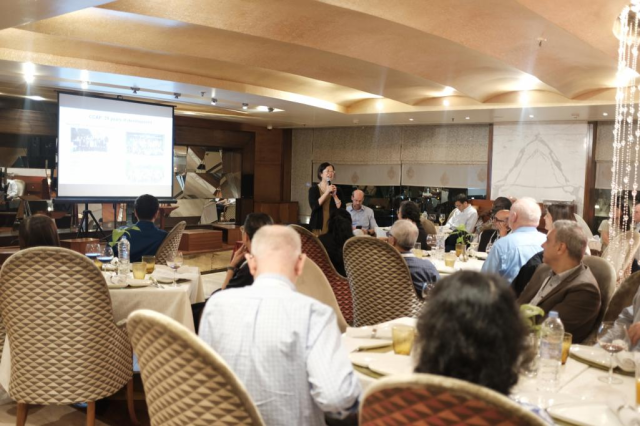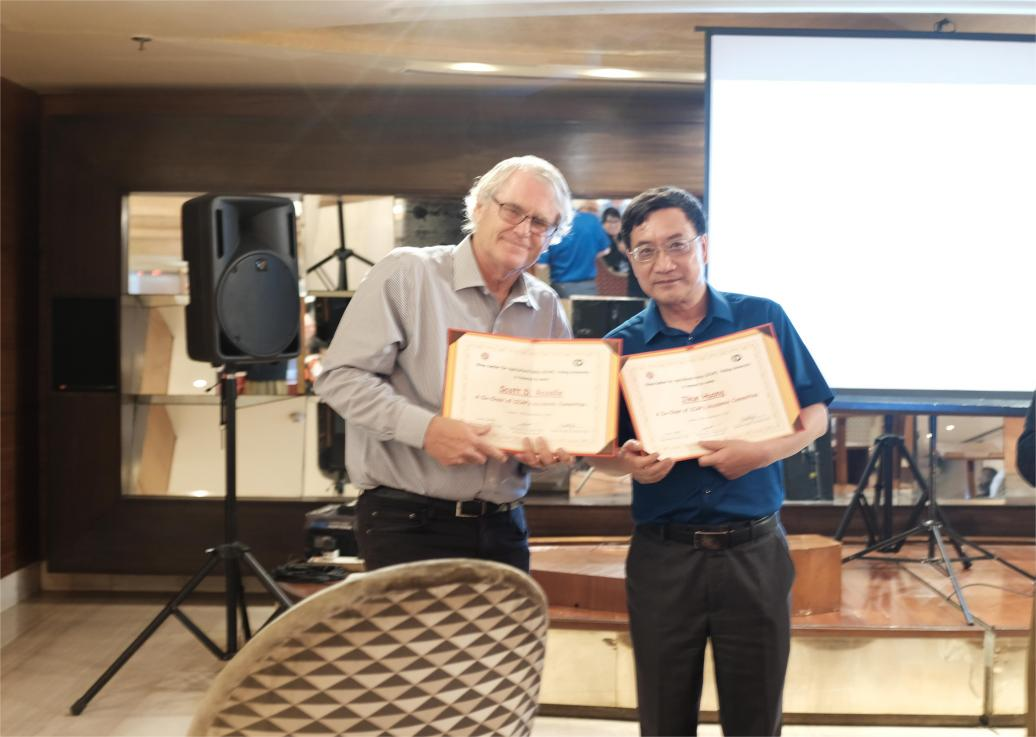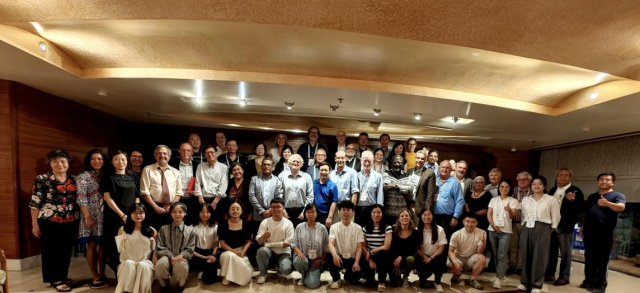current location: Home> Central News
Central News
2024 Academic Committee Meeting of CCAP Successfully Held in New Delhi
Release date:2024/08/31 Source: CCAP
On August 4, 2024, during the 32nd International Conference of Agricultural Economists (ICAE) in New Delhi, India, the China Center for Agricultural Policy (CCAP), Peking University (PKU) convened a meeting of its newly appointed Academic Committee (AC). More than 50 participants attended the event. This gathering clearly demonstrated CCAP’s wide international network and recognition on its development and achievements.
Professor Jikun Huang, Co-chair of CCAP’s AC, Dean of the School of Advanced Agricultural Sciences, PKU, chaired the meeting with warmly welcome to all participants.

To begin with, Professor Jinxia Wang, Director of CCAP, briefly introduced CCAP's mission, development history, organizational structure, and its achievements in research and informing policies. Since its establishment in 1995, CCAP has developed a world-class agricultural economics research team that has not only made significant academic contributions but also focused on translating research findings into actionable policy advice, providing valuable decision-making support to policymakers in China and abroad. Between 2001 and 2023, CCAP published over 1,450 papers in the prestigious domestic and international journals, averaging more than 60 papers annually. CCAP also submitted over 250 policy reports to central government agencies, with more than 90 reports being adopted by the State Council or the General Office of the CPC Central Committee. From 2018 to 2024, CCAP consistently ranked the first in Asia in the RePec/IDEAS global ranking of agricultural economics research institutions. She concluded her speech by expressing gratitude, on behalf of the entire CCAP, to AC members, alumni, collaborators and friends for their continuous support and help to CCAP.

All participants acknowledged the tremendous achievements that CCAP has made over the past three decades or so. They also offered valuable ideas and suggestions for CCAP's future development and explored potential opportunities for collaborations, followed by heated discussions on cutting-edge topics in agricultural economics.
Then, Professor Jinxia Wang announced the members of the Academic Committee of CCAP for 2024-2028, and Professors Jikun Huang and Scott Rozelle (Stanford University), two co-chairs of CCAP’s AC presented them with certificates.
17 CCAP’s AC members, CCAP’s collaborators and distinguish guests attended the meeting. They include but not limited to: six former Presidents of IAAE, Professor Robert Thompson (University of Illinois), Professor Prabhu Pingali (Cornell University), Professor Joachim von Braun (former Director General of the International Food Policy Research Institute, IFPRI), Professor Johan Swinnen (Director General of IFPRI), Professor Nick Vink (Stellenbosch University), and Dr. Will Martin (Senior Research Fellow at IFPRI); Professor Matin Qaim (University of Bonn, the current President of the IAAE); Professor Jill McCluskey (Washington State University, former President of the American Agricultural and Applied Economics Association); Professor José Maria Gil Roig (Centre for Agro-food Economics and Development, President of the European Association of Agricultural Economists); Professor Shenggen Fan (China Agricultural University, former Director General of IFPRI); Dr. Maximo Torero Cullen (Chief Economist, Food and Agriculture Organization); Dr. Klaus Deininger (Lead Economist, World Bank); Professor Wendy Umberger (CEO, Australian Centre for International Agricultural Research); Professor Carl Pray (Rutgers University); Dr. Mercy Sombilla (former Undersecretary, Department of Agriculture of the Philippines); Dr. Ousmane Badiane (Head, AKADEMIYA in Africa); Professor Frank Scrimgeour (University of Waikato); and Professor Holly Wang (Michigan State University, Editor-in-Chief of Food Policy). The meeting was concluded with a group photo followed by a reception dinner where participants continued their discussions and interactions.






 Home
Home



